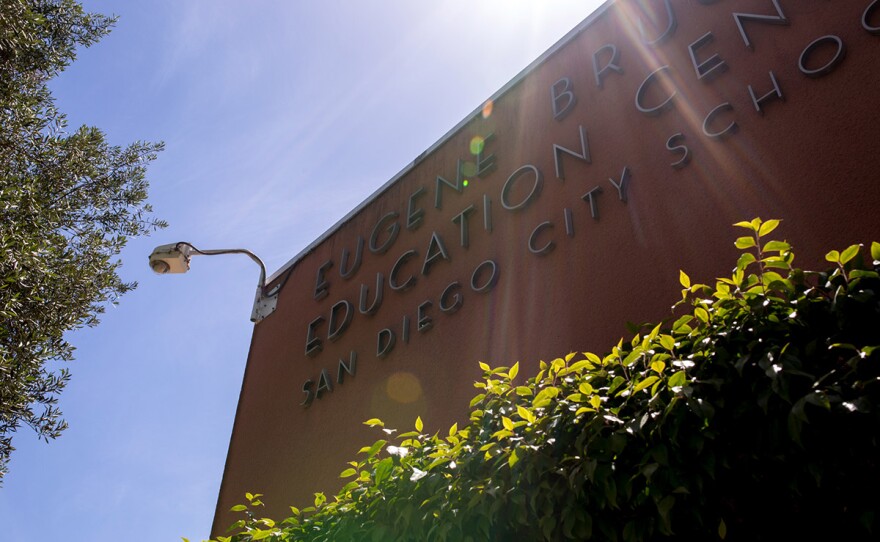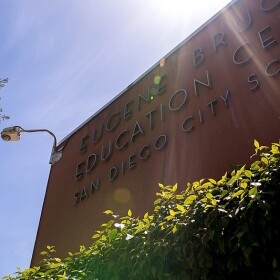While U.S. Education Secretary Betsy DeVos described this year’s national results as “devastating,” San Diego Unified School District has outperformed the state and the country in both math and reading.
The National Assessment of Educational Progress is a test that’s administered every two years to fourth and eighth graders in urban school districts. At San Diego Unified, between 35 and 42% of test takers met proficiency with scores surpassing state and national averages.
Superintendent Cindy Marten attributes this success to a focus on reading, specifically training teachers across grades and subjects to become literacy experts, especially for the youngest students.
“That happens through investment in early literacy,” Marten said. “And that’s been key to the strategy in San Diego Unified.”
Marten described the district’s approach to literacy as a “student-centered” model that requires teachers to collaborate to meet individual needs.
The district defied some downward trends state and nationwide. For eighth grade reading and math, both national and state averages slumped since 2017, but San Diego Unified saw a two-point increase.
However, historical achievement gaps persist for black, Latino and socioeconomically disadvantaged students both locally and nationally. Marten said the district will use the results from the National Assessment of Educational Progress to examine the gaps within individual schools and classrooms.
“National large data sets like this will always illuminate where the gaps are,” she said. “When you see gaps in student achievement, you wanna understand: What are you doing to interrupt those gaps early?”







